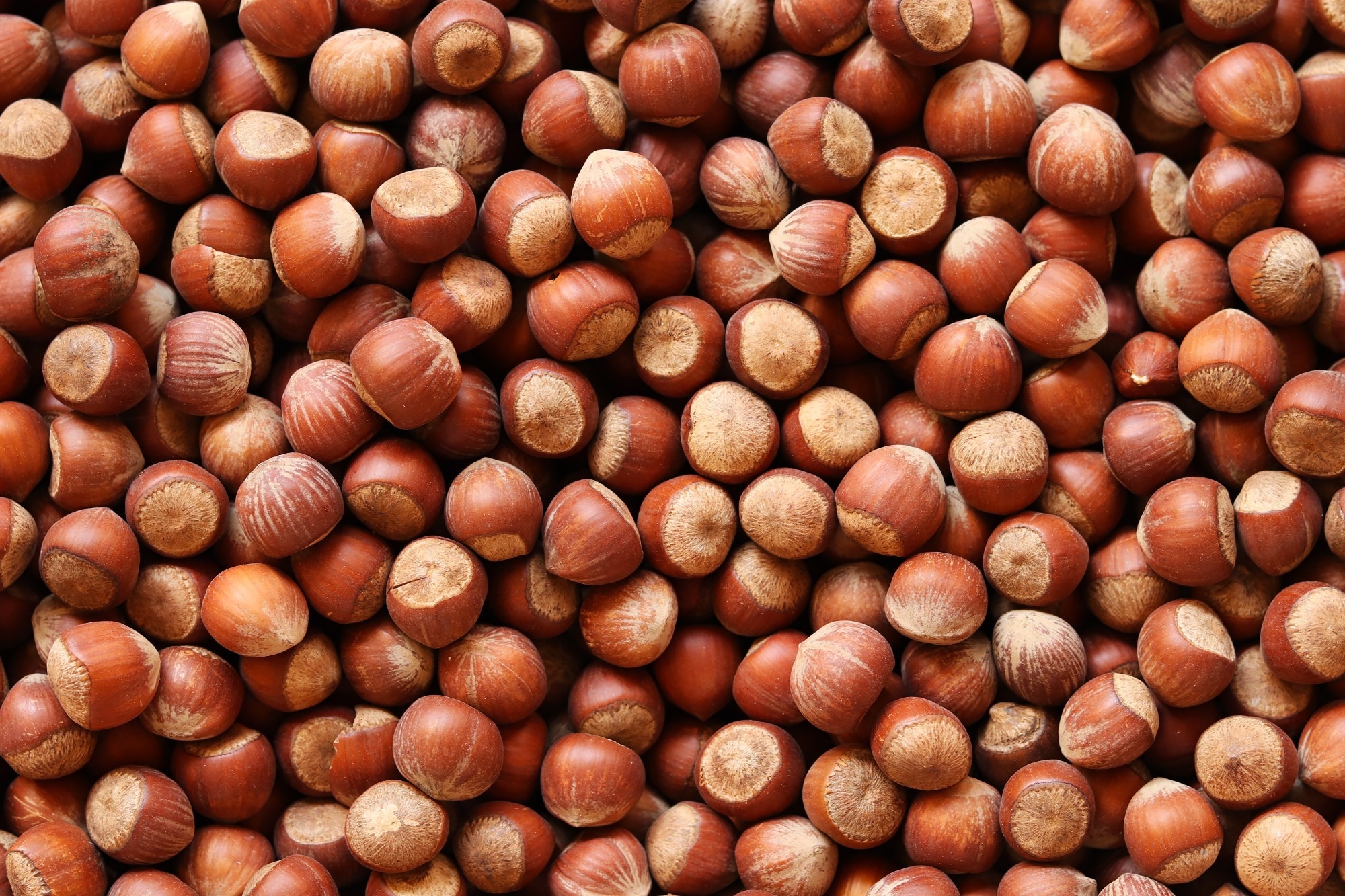Could a humble nut by-product make your burger healthier and last longer? New research shows that hazelnut skin extract can naturally fight spoilage in pork burgers, no synthetic additives required.
 Study: Incorporation of hazelnut skin green extract in pork burgers delays lipid oxidation during cooking and in vitro digestion. Image Credit: Alina Kay / Shutterstock
Study: Incorporation of hazelnut skin green extract in pork burgers delays lipid oxidation during cooking and in vitro digestion. Image Credit: Alina Kay / Shutterstock
In a recent study in the Journal of the Science of Food and Agriculture, researchers investigated whether a hazelnut skin green extract (HSGE) could be leveraged as a natural herbal antioxidant in pork burger cooking.
The researchers tested a single formulation (1% HSGE, 10 g/kg) of HSGE versus a standard control. They found that HSGE significantly reduced certain markers of lipid oxidation after cooking and during simulated digestion compared to the control. Importantly, hazelnut’s antioxidant compounds remained present after both cooking and digestion, supporting these hitherto-nut industry discards as promising future food supplements.
Background
Lipid oxidation remains among the most common exacerbators of meat spoilage, producing aldehydes (e.g., pentanal and hexanal) and other metabolic products that have been shown to adversely affect the flavor, color, smell, and texture of meat products. While the study describes these aldehydes in the context of meat spoilage, it specifically measured TBARS and lipid hydroperoxides as indicators of lipid oxidation. A growing body of research highlights the potential negative physiological consequences of consuming oxidized meats, linking the exposure to cardiometabolic disease and even some cancers.
Lipid oxidation, hence, presents a significant challenge for the meat production supply chain, often necessitating the use of expensive traditional synthetic antioxidants with potential side effects. Encouragingly, growing consumer demand for natural, clean-label alternatives is driving the hunt for natural, ideally plant-based antioxidants. Hazelnut skin (HS), known for its high concentration of known antioxidants such as tocopherols and phenolic compounds, presents a promising candidate in this search.
Furthermore, HS is commonly available in abundance as the material is a by-product of the nut’s processing, often treated as waste and discarded. If this skin is proven to be an antioxidant beneficial in the meat industry, its discovery would represent an opportunity for a sustainable circular economy, resulting in reduced nut industry waste and significantly reduced meat industry costs. Most importantly, this would ensure that you, the consumer, are exposed to healthy, natural, plant-based processing techniques instead of potentially harmful synthetic chemicals.
About the study
The present study assessed this knowledge gap by investigating whether adding hazelnut skin green extract (HSGE) can restrict or mitigate its oxidation rate, thereby preserving its flavor and nutritional value for longer. Furthermore, HSGE’s phenolic profile was characterized to reveal potential mechanisms and biomolecules responsible for its observed benefits.
The study investigated two pork loin burger formulations:
- Control group: This mix included 15 grams of sodium chloride (salt), 885 grams of pork loin muscle, and 100 grams of subcutaneous fat per kilogram of the total mixture.
- HSGE group: This formulation was identical to the control but also included 10 grams of hazelnut skin green extract (HSGE) per kilogram of mixture.
Substances of interest for chromatographic analyses included HSGE, its phenolics (isolated via subcritical water extraction), and lipid hydroperoxides (extracted from all burger samples). High-resolution mass spectrometry (HR-MS) was used for substance characterization. Additionally, the ‘thiobarbituric acid reactive substances (TBARS)’ method was leveraged to measure advanced lipoxidation end-products across all burger types.
Study findings
HR-MS analyses of HSGE revealed that the extract was rich in phenolic compounds, with flavan-3-ols (79.2%) like epicatechin (15,463.2 μmol kg−1 extract) being the most prominent. Surprisingly, these bioactives remained present in both raw and cooked burgers, suggesting that cooking does not degrade their function and their benefits may extend into the digestive process.
While the extract showed no significant antioxidant effect in raw burgers, its benefits became clear after cooking and during digestion. HSGE-derived phenolics obtained from just 1% hazelnut skin extract were observed to drastically reduce the concentration and activity of TBARS (−72.7% following cooking) and lipid hydroperoxides (−43.3% following intestinal digestion and −48.6% following gastric digestion of pork burgers), thereby preventing key aspects of the oxidation of pork meat. Furthermore, HR-MS identified several bioaccessible phenolics that were released during in vitro digestion.
During the gastric phase of digestion, the most released bioaccessible phenolics were predominantly hydroxybenzoic acids (72.5%), making them potentially available for absorption by the body. However, only about 28.7% of the phenolics present in cooked burgers were bioaccessible after intestinal digestion, reflecting the limited release of these compounds from the food matrix.
The study also found a notable “food matrix effect,” where some phenolic classes, such as flavonols, demonstrated high stability in the presence of meat proteins. The observed increase in ellagic acid during digestion was attributed to the degradation of gallic acid and derivatives, rather than new synthesis.
It is important to note that the study did not assess any changes to meat fiber content or fatty acid profile, nor did it evaluate sensory properties or direct effects on human health or the gut microbiome. All findings relate to in vitro chemical and biochemical outcomes.
Conclusions
The present study highlights the utility of hazelnut skins, an unused by-product of hazelnut production, in naturally and effectively improving the shelf life and nutritional composition of oxidation-prone meat products such as pork burgers.
While not discussed in the paper, logical next steps for this research could include exploring combinations with other natural antioxidants, taste adjustments, and consumer acceptance in real-world settings. Explorations like these may allow us to help solve challenges in food preservation without exclusively depending on potentially harmful synthetic preservatives.
Journal reference:
- Trovato, R., Cattivelli, A., Zannini, M., D’Ambra, K., Minelli, G., Conte, A., Tagliazucchi, D., & Lo Fiego, D. P. (2025). Incorporation of hazelnut skin green extract in pork burgers delays lipid oxidation during cooking and in vitro digestion. Journal of the Science of Food and Agriculture. DOI -- 10.1002/jsfa.70039. https://scijournals.onlinelibrary.wiley.com/doi/10.1002/jsfa.70039.